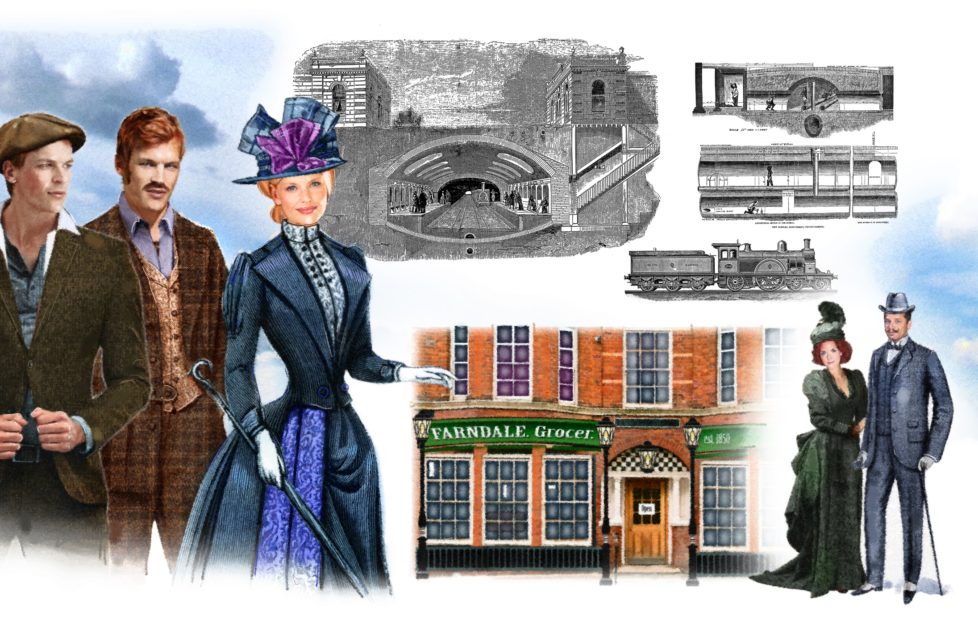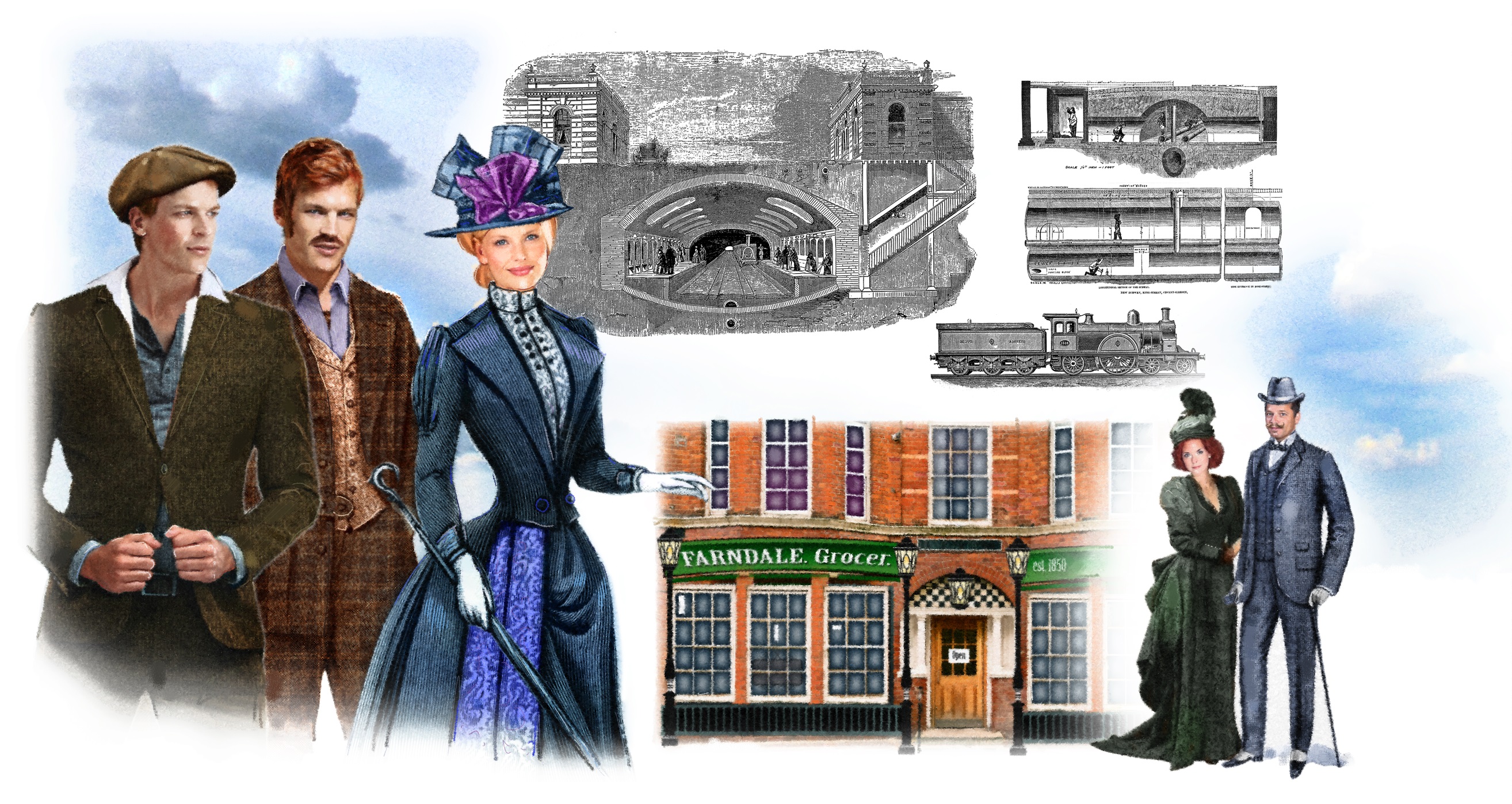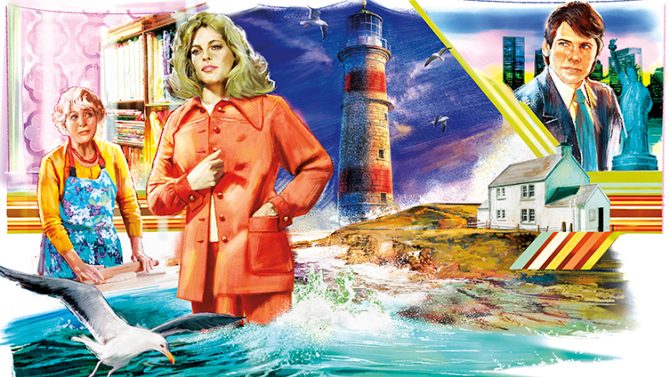Under The Streets Of London – Episode 01

Under The Streets Of London
« Previous Post- 1. Under The Streets Of London
- 2. Under The Streets Of London – Episode 01
- 3. Under The Streets Of London – Episode 02
- 4. Under The Streets Of London – Episode 03
- 5. Under The Streets Of London – Episode 04
JUNE 1861
“The whole thing is madness!” In New Road, Euston, Mary Farndale faced her husband across a display of apples, hands on hips.
John Farndale put out a placatory hand.
“I don’t think a second shop is madness. We need to expand. We . . .”
“Not the shop! That!”
She pointed out of the door of their neat little grocery shop, their pride and sustenance for ten years, to what had once been a road.
The place swarmed with hordes of navvies, laughing, shouting and cursing all day long as they ripped their spades into New Road, carving out a cavernous trench that, as far as Mary could see, was little more than a death trap.
“The underground train’s not madness, sweetheart,” John said cautiously.
“Of course it is! Trains in tunnels – whoever heard of such nonsense?”
John went to take a step towards her, then stopped. Mary was normally the sweetest, gentlest soul, tending their shop, the cramped little flat above it and their four children with care and patience. Just occasionally, though, she snapped and then it was best to stand well back.
“They had to do something, Mary,” he offered. “The traffic into the city was dreadful, with all the new workers in the factories and warehouses.”
“And it isn’t now? Balcombe Lane is at a standstill most of the day now that all the carts have been diverted down it. The deliveries can hardly get to us and sometimes William can’t even squeeze through on his bicycle for the chaos. We’re lucky if the veg hasn’t wilted by the time it gets to the customers.”
“I know, sweetheart, but once the Metropolitan line is finished . . .”
“Finished? One year, they said it would take when we voted for it at that meeting. They also said they’d ‘keep disruption to a minimum’. Remember that? And what have we got? A gaping trench crawling with navvies and hardly a glimpse of the precious tracks these wonder-trains will run on.”
John shifted.
“Progress has been slow,” he admitted, “but it’s a huge project. It’s . . .”
“It’s madness.” Mary began stacking onions, ramming them on top of each other.
“Careful, sweetheart, you’ll bruise them.”
“As if it makes a difference, John. We’ve barely any customers!”
“That’s not true, Mary.”
“Isn’t it? They’re all going to Monroe and Shelton’s on Melcombe Place, away from the noise, the mud and the danger. Hardly worth dying for, is it, an onion?”
She crossed to the doorway and looked out, trying to cling on to her anger and keep back the tears. It wasn’t like her to get so emotional, but she’d caught their Bertie scrambling about on the wooden struts holding up the side of the tunnel again this morning. It scared her.
“Right little monkey you have there, missus!” the navvies had called to her. As if that was something to be proud of! They wouldn’t be laughing so hard when the ten-year-old fell and cracked his head on the metal rails.
John placed his hands on her tight shoulders. For a moment she tensed, then she crumpled against him.
“I’m sorry, John, it’s just so noisy and messy, and it seems to be going on and on. It gets to me.”
“Me, too, sweetheart, but it’ll be worth it, I promise.”
She sighed.
“Where’s this second shop of yours, then?” she asked. “Back from this wretched railway, I hope.”
John coughed awkwardly.
“Not as such. It’s the other side of the park. Only a bicycle ride away but right by Euston station. Hundreds of people will pour out of there every night once the line’s open, and we’ll be right on hand to supply their every grocery need.”
“Assuming we’re not bankrupt . . .”














